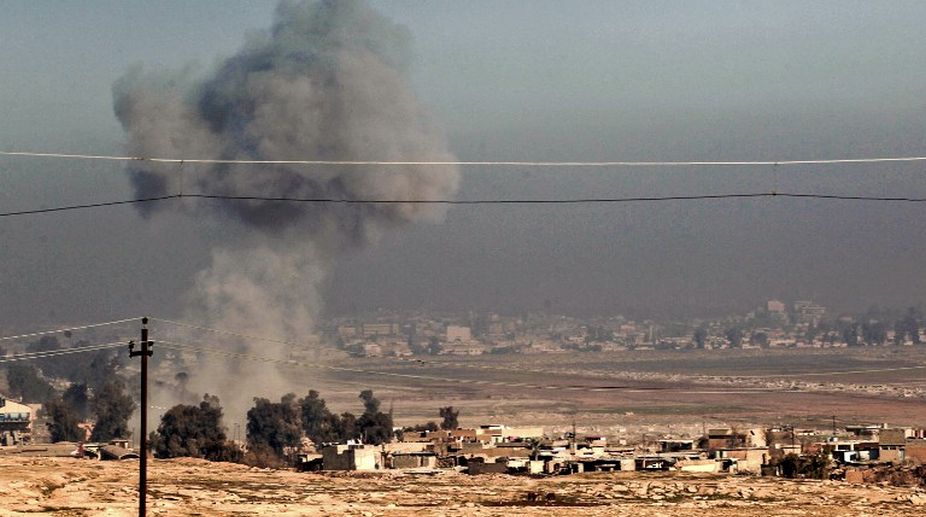At least six civilians, including a girl, were killed on Saturday in bombings by unidentified aircraft on areas in Eastern Ghouta, the besieged rebel-held enclave on the outskirts of Damascus.
The Syrian Observatory for Human Rights (SOHR), a UK-based war monitoring group, said the bombings targeted the towns of al-Mohamadiya and Beit Sawa, but did not say whether they took place before or after the 9 a.m. start of the daily five-hour ceasefire that has been applied by Syrian government forces since Tuesday.
Advertisement
The Syrian government claimed to have created humanitarian corridors to allow civilians to leave Eastern Ghouta, but the official news agency SANA on Saturday accused the rebels of firing on civilians trying to flee.
Fighting continued between forces loyal to the Syrian government, which are supported by Russia, and militias from the Jaysh al-Islam rebel group in the east and southeast of Eastern Ghouta, in an attempt by government troops to advance in that area, Efe news reported.
Earlier on Saturday, the SOHR reported that unidentified warplanes had bombed several parts of Eastern Ghouta and carried out 40 attacks between Friday night and Saturday morning, targeting the areas of Douma, Harasta and al-Shifuniya.
The SOHR raised the number of people killed in Douma in the last 24 hours to 19, including two children and three women.
Russia proposed a daily humanitarian ceasefire from 9 a.m. to 2 p.m. in Eastern Ghouta after the approval last weekend of a UN Security Council resolution calling for a month-long humanitarian ceasefire across Syria.
Since February 18, Eastern Ghouta has been bombed by Syrian and Russian aircraft as well as government artillery, claiming the lives of at least 636 people, including 151 children and 93 women, the SOHR reported.
According to the UN, some 400,000 people remain trapped in Eastern Ghouta’s rebel-held network of towns and satellite cities on the outskirts of Damascus, which has been under siege by forces loyal to the Syrian government for several years, preventing much-needed food and humanitarian aid from entering.











